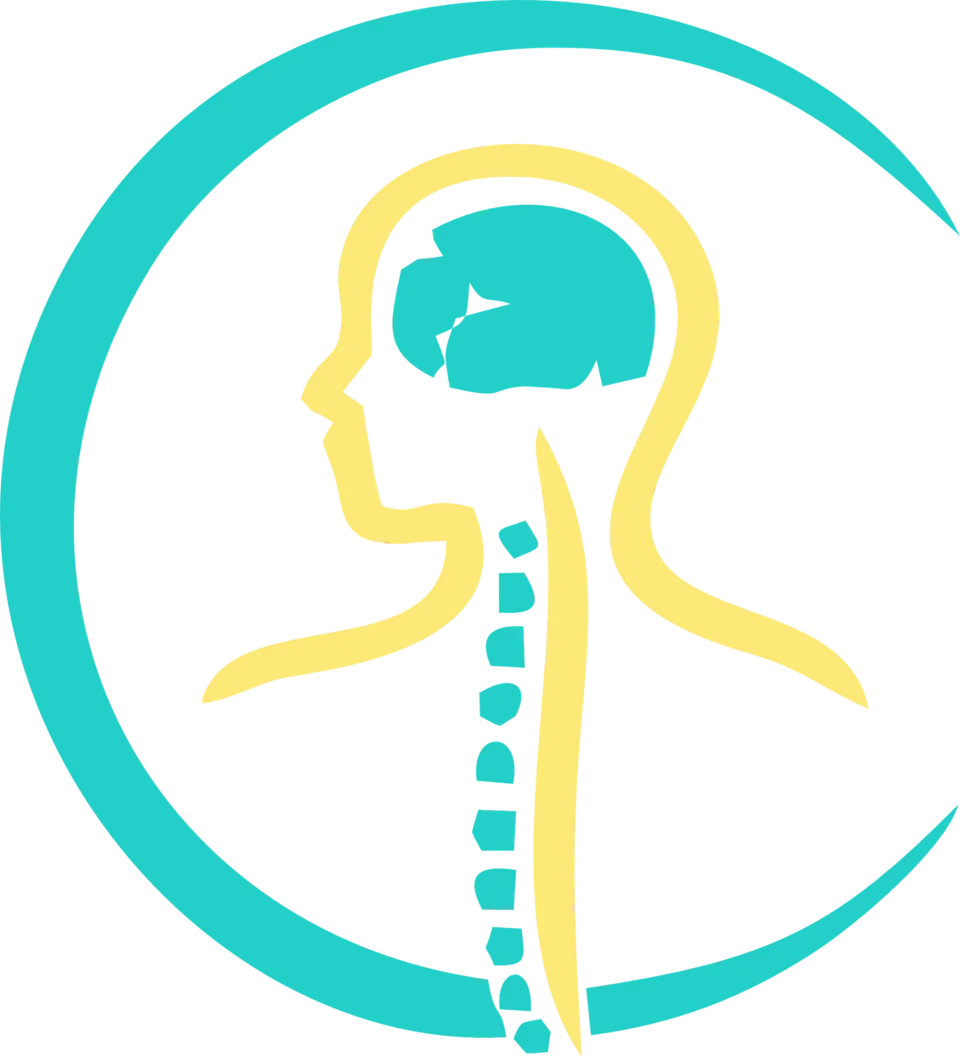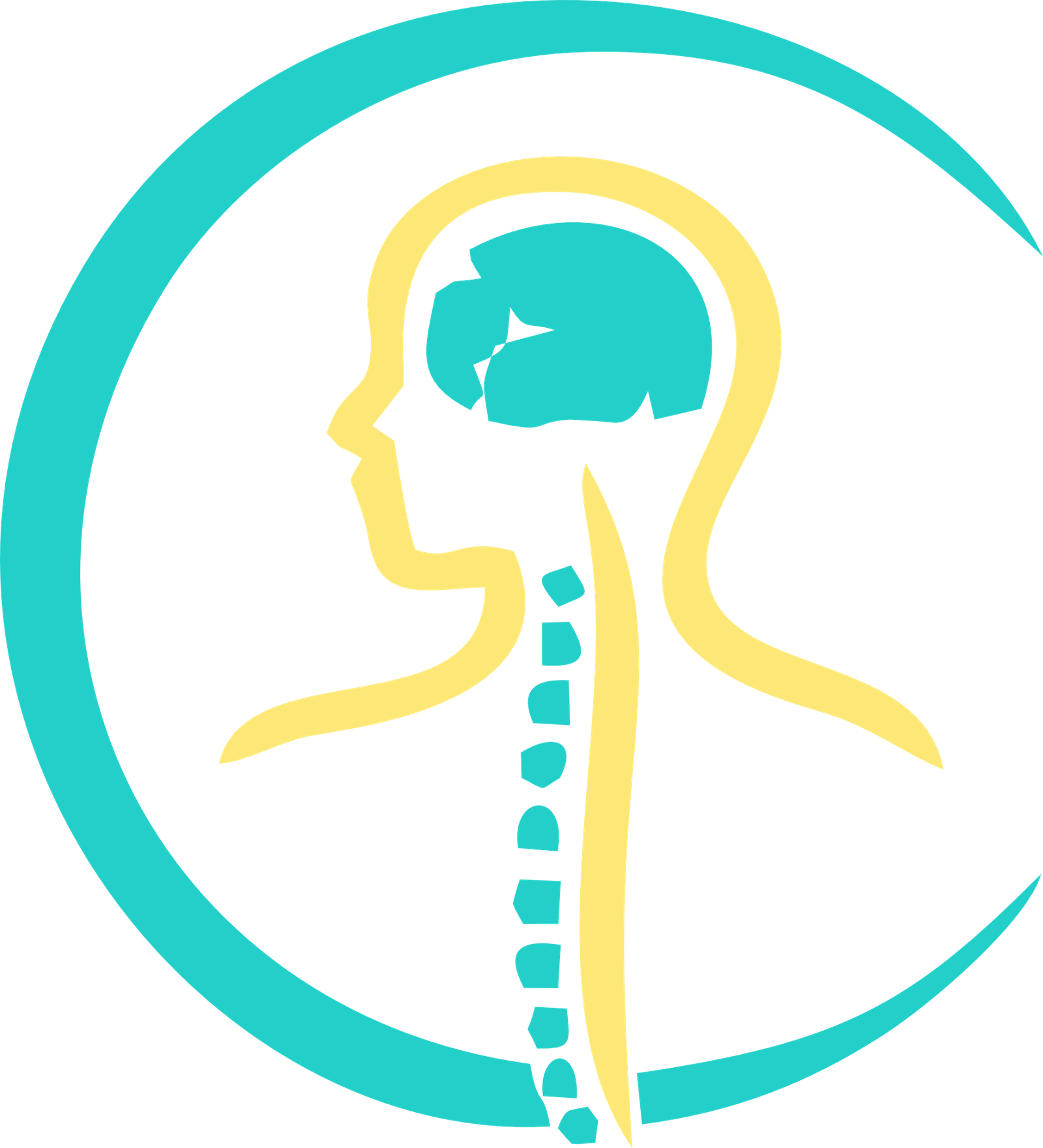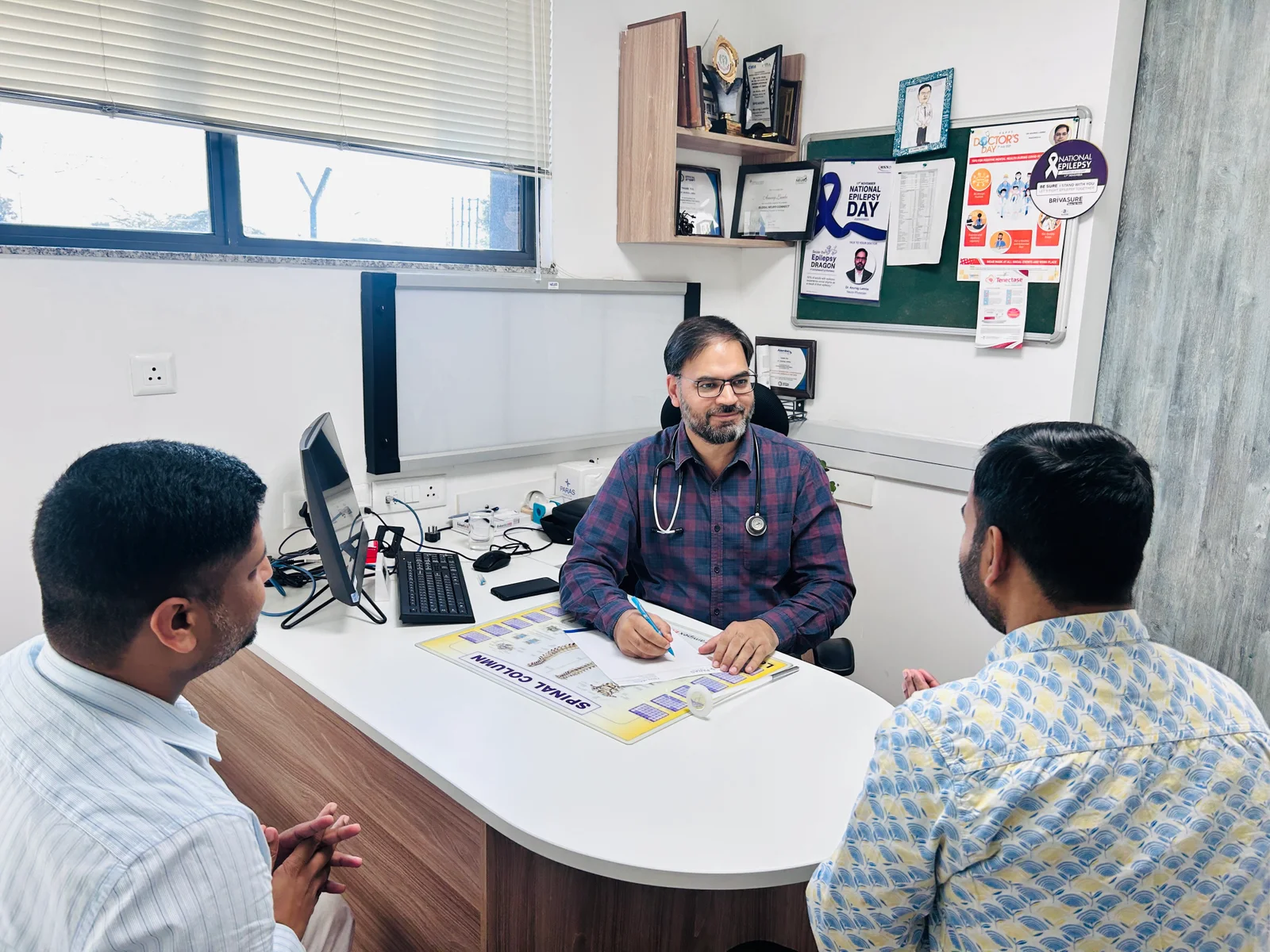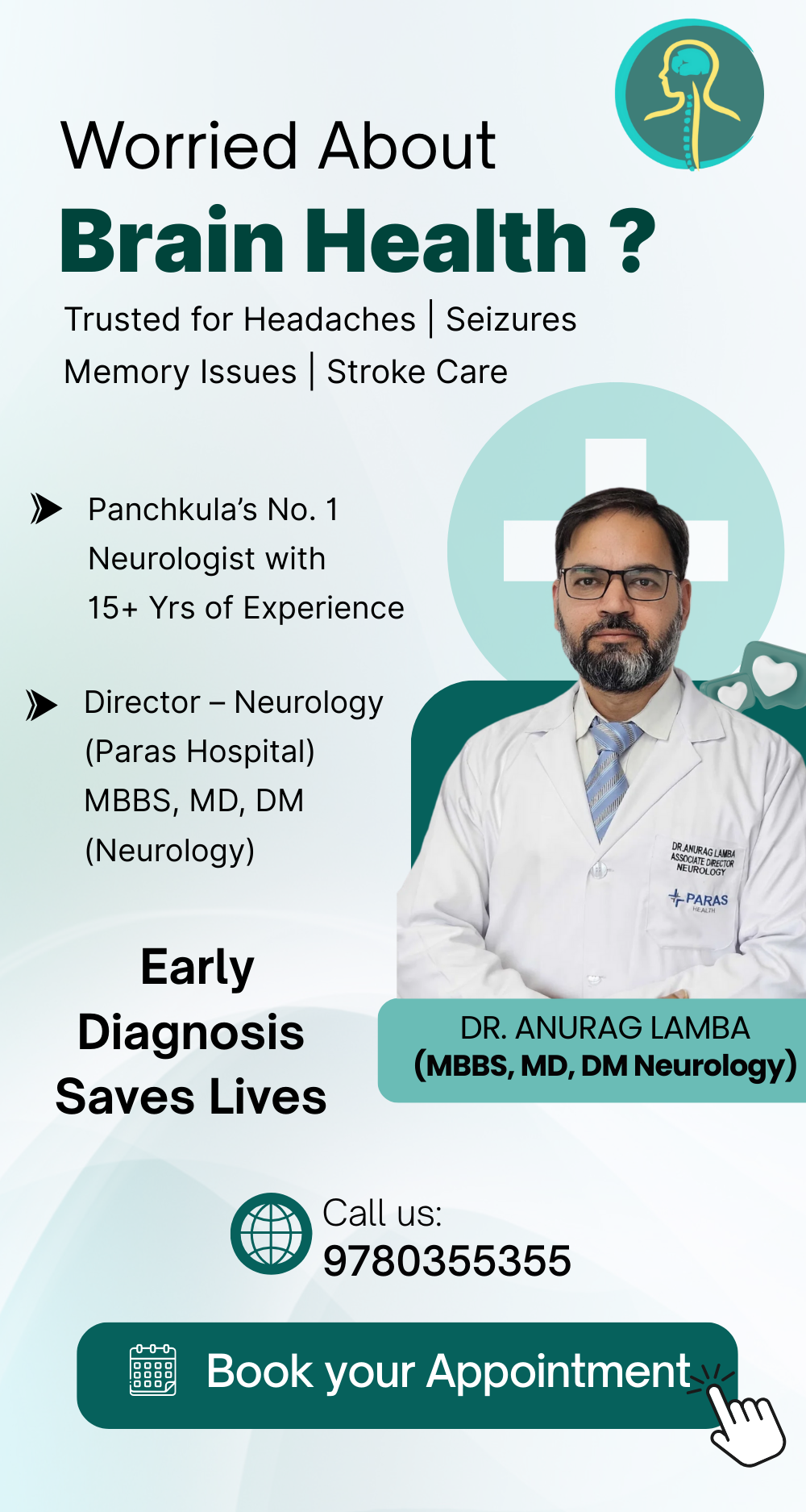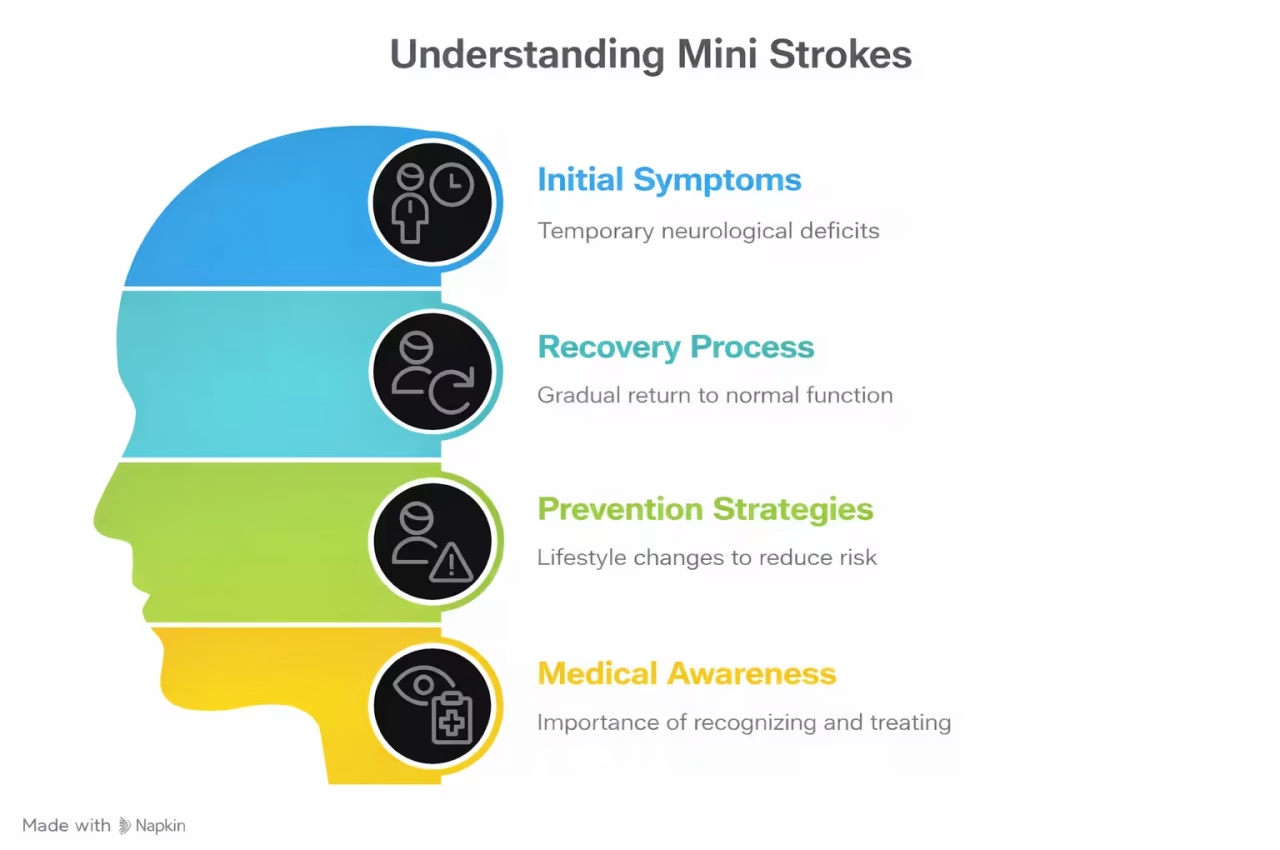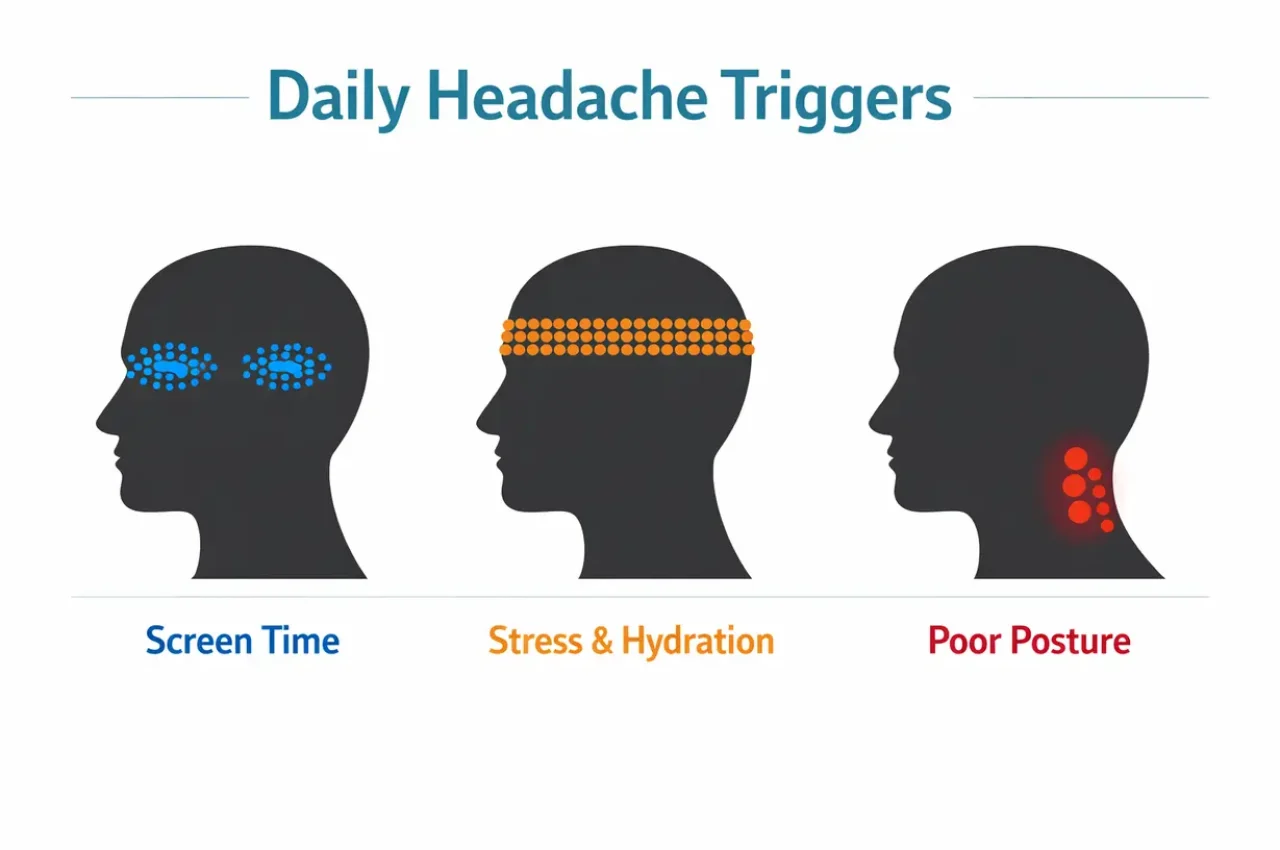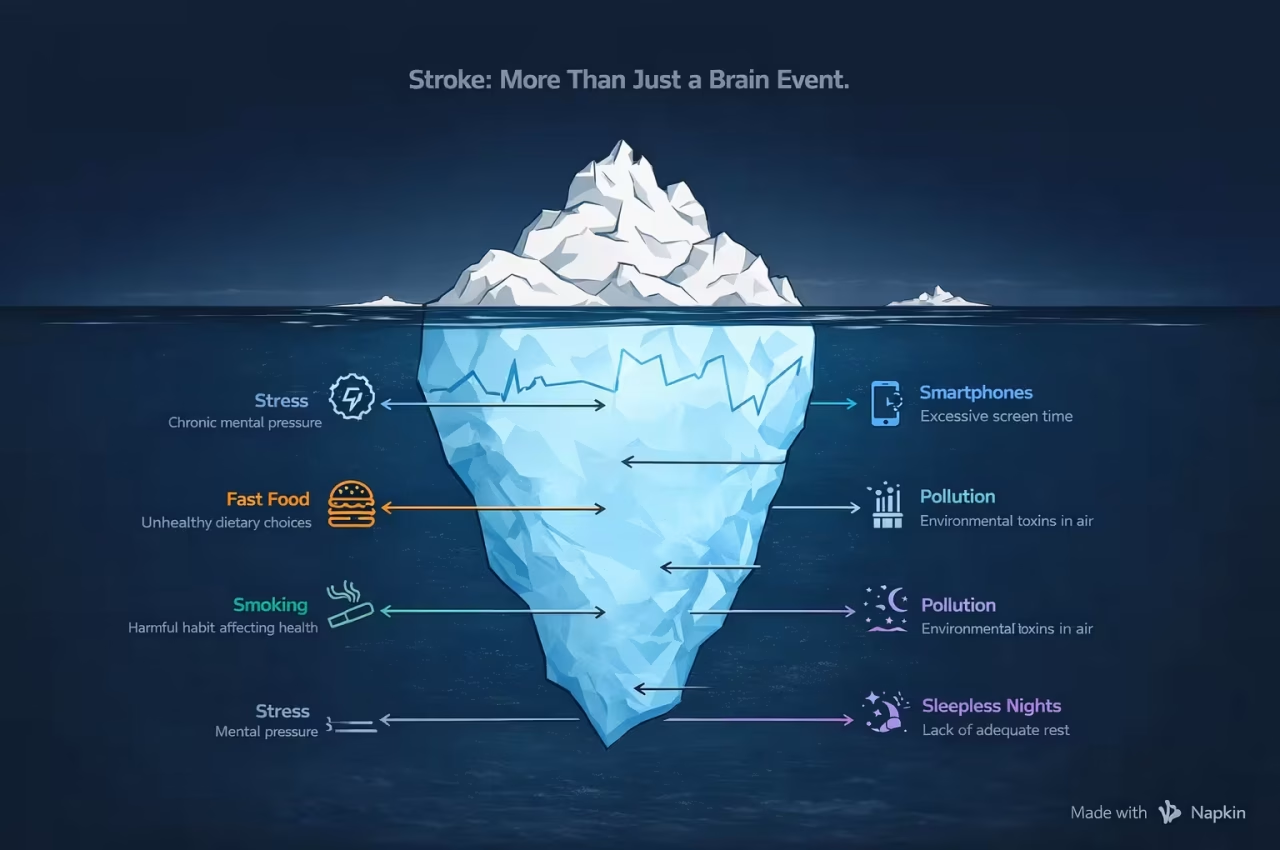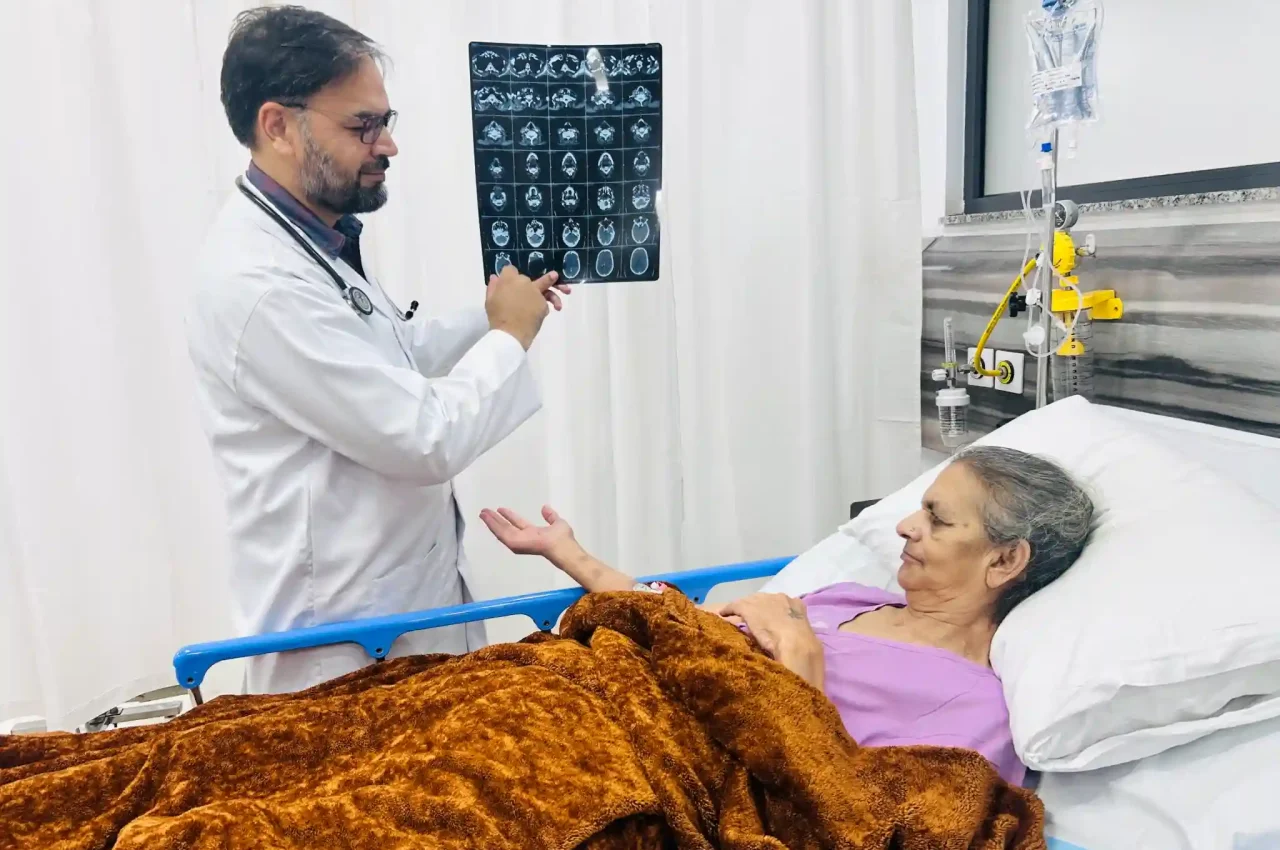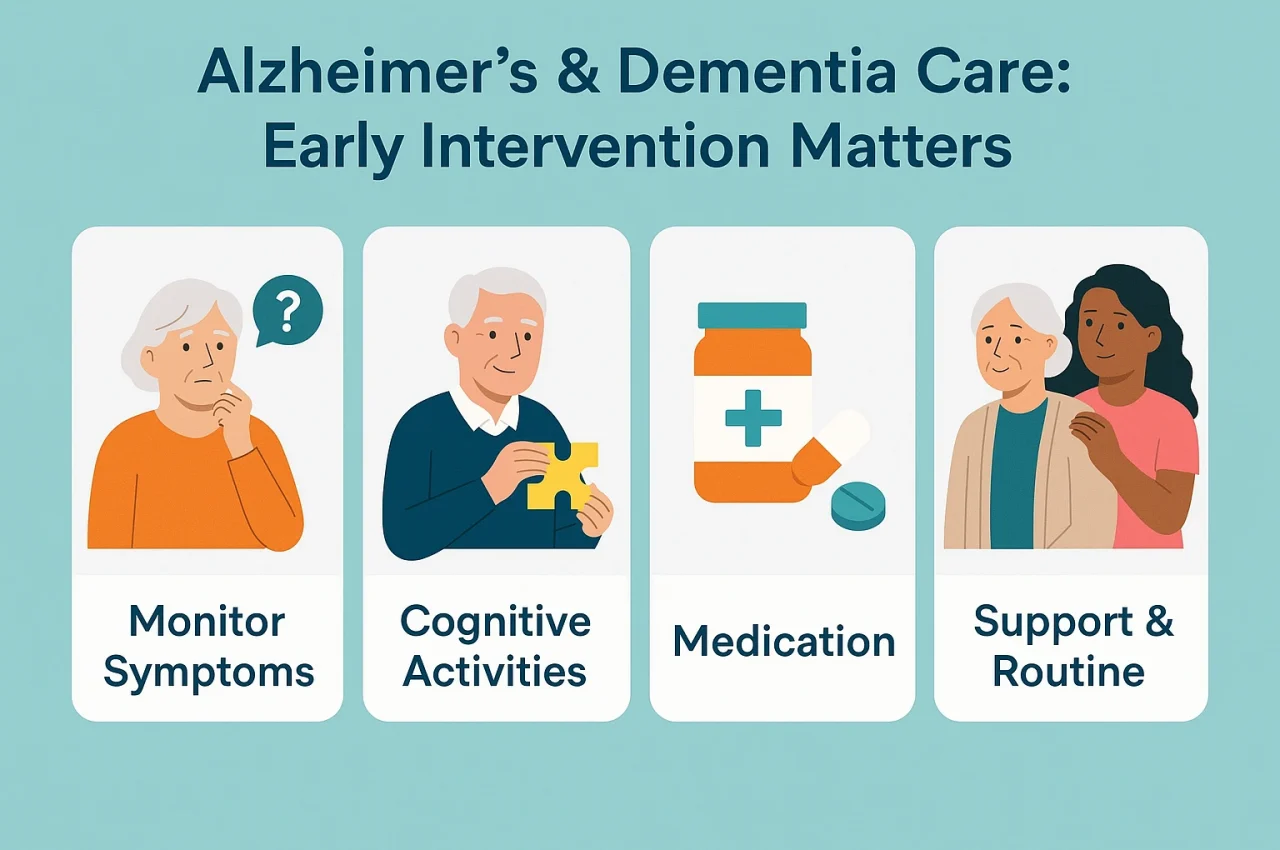Not sure who to turn to when it comes to brain health? You’re not alone. Neurology can feel intimidating. Most people think it’s all about big machines and complex tests. But at the heart of it, it’s about feeling seen, heard, and understood. That’s what we try to offer every single person who walks into our clinic in Panchkula. It’s probably why so many of our patients end up sending their family and friends to us.
What a Good Neurologist Actually Does
Being a neurologist in Panchkula isn’t just about reading MRI scans or handing out prescriptions. It’s like solving a puzzle, where every small clue matters. Patients often come in with symptoms that feel too small to be serious. But when we sit with them, listen carefully, and observe closely, those little things tell us a much bigger story.
Someone might casually say, “My hands have felt a bit weak” or “I’ve been losing balance now and then.” It sounds simple, but we look deeper. How are they sitting? Do their hands move naturally? Is their voice a bit softer than expected? Sometimes, answers hide in plain sight.
We remember a woman in her sixties who came in with just a minor tremor. She was active, sharp, and thought it was just part of getting older. But after going through her history and examining her movements closely, we suspected early Parkinson’s. Tests later confirmed it, but the real diagnosis happened during that long, thoughtful conversation.
This is what neurology really is. It’s about patterns, reasoning, and trust. Machines help us, sure. But they can’t pick up on the hesitation in someone’s voice or the emotion in their eyes. That’s why our role goes far beyond technology.
Many people arrive thinking their dizziness or headaches are just stress or blood pressure. And often, that’s all it is. But when it’s not, catching it early can change everything. So we do our best to keep things simple and reassuring, even when the symptoms seem confusing.
What we’ve learned over time is this: people don’t just want a diagnosis. They want clarity. They want to feel safe. That’s where kindness and communication really matter.
📘 Want to know more about subtle signs? Here’s a helpful resource on Parkinson’s symptoms and treatment
The Panchkula Patient Perspective
We see it all the time. A family notices something strange, but they’re unsure where to go or what it means. Like the family who brought in their aunt. She’d started having these strange blank stares and moments where she just zoned out. At first, they thought it was stress or low sugar. But when it kept happening, they got worried.
By the time they came to us, everyone was on edge. But right from the front desk, we slowed things down. Helped them feel comfortable. Explained how to share symptoms clearly. We’ve designed our clinic to feel calm, not clinical. No loud TVs or cold metal chairs. Just a quiet space where families can breathe.
During her consultation, we asked questions that may have seemed unrelated at first. About childhood headaches. About sleep. About how often she stumbled. Because sometimes the past holds answers we miss in the rush.
We talked about how seizures don’t always look dramatic. They can be subtle freezing mid sentence, feeling dazed for a few seconds. And we reassured them: epilepsy isn’t the end of the road. It just needs the right plan medication, good sleep, less stress, and supportive routines. We even gave them a simple handout in Hindi and English.
Another patient’s story came to mind. A middle aged man kept being told his blank spells were just stress. But it turned out to be focal seizures. With the right treatment, he went back to work in weeks.
That’s what makes the difference. Not just tests or tablets. It’s when people leave feeling like someone actually listened. That’s when the fear starts to melt.
Small Signs That Need Big Attention
Not all symptoms hit like a thunderbolt. Sometimes, it’s the tiny things that keep whispering and we just get used to ignoring them.
Let’s talk about three common signs we ask everyone to take seriously
- A trembling hand holding your cup of chai It may seem like nothing. Just nerves, maybe tiredness. But if your hand shakes a little every day, it could be an early sign of something like Parkinson’s. One of our patients thought it was just work stress. After a quick exam, we caught early Parkinsonism and started treatment early enough to keep things under control.
- Forgetting more than usual We all forget stuff sometimes. A birthday, a name, where we kept the remote. But when forgetfulness becomes more frequent, or you blank out during conversations, it might not be “just stress.” We’ve had patients who said they felt completely normal until they couldn’t recall what they had for dinner the night before. That’s when we check for early dementia or Alzheimer’s.
- Stiffness that won’t stretch out Waking up stiff once in a while is okay. But if it happens daily, and movements feel slower than they used to, it may be more than just age. Neurological stiffness feels different. It doesn’t go away with a quick stretch. It sticks. And it can be an early warning for conditions like Parkinson’s or multiple sclerosis.
These signs don’t scream. But they repeat. And when they do, it’s time to listen.
Our 3 Go To Habits for Brain Health
We always tell patients your brain is a bit like a high performance machine. And to keep it running well, you don’t need fancy supplements or complicated routines. Just a few simple habits done daily.
Hydration is brain fuel Most people don’t connect water with brain health. But the moment you’re even slightly dehydrated, your focus and memory drop. Start your day with a big glass of water. We call it “brain ka nimbu paani,” even if there’s no nimbu. Carry a bottle. And if you’re a chai lover, make a rule: two cups of chai? One glass of water right after.
Sleep is your brain’s reset button Sleep is like tuning a radio. If you miss the right frequency, nothing works. If your brain isn’t rested, your mood, memory, and concentration all take a hit. Try sleeping at the same time every night. Cut out screens half an hour before bed. And if you still feel unrested or your sleep is disturbed, talk to us. Sometimes it’s not just stress it could be sleep apnea or another hidden condition.
Movement is your brain’s best friend Think walking is only good for your heart? It’s just as good for your brain. It boosts circulation, mood, and even builds new brain cells. We tell patients 30 minutes of walking daily is non negotiable. It could be in your colony, on the terrace, or around the house while doing chores. Even a little bhangra counts.
If you do these three things every day, your brain will thank you. And if you still feel off confused, tired, unbalanced don’t brush it aside. Come see us.
Why People Keep Coming Back
When someone chooses us for their care, we take it seriously. Because for us, being a neurologist isn’t just about writing a prescription and saying goodbye. It’s about being part of someone’s journey and sticking with them through all the ups and downs that come with it.
What makes people return isn’t just the diagnosis or the medicine. It’s the fact that they feel remembered. Seen. Valued. Even between appointments.
We stay in touch with many of our patients. Sometimes it’s a message on WhatsApp. Sometimes it’s a photo update from their caregiver. And sometimes, it’s just a quick question: “Is this symptom okay?” We respond because we believe that real care doesn’t wait six months to check in.
And it’s not just us as doctors. Our clinic staff plays a big part in this too. The receptionist who remembers you prefer afternoon appointments. The nurse who quietly brings you water when you look tired. These are the small things that don’t show up in reports, but make all the difference.
We think of Mr. R a retired banker who came to us after a stroke. He could barely speak at first. One side of his body was weak. It was frustrating, especially for someone used to being so active and sharp. But we took it slow. Celebrated small wins. The first time he lifted a cup. The first time he said his daughter’s name. His family sent us updates every week. Some good, some not. But every step forward, we were there.
Now, he walks on his own to the gate and back. Cracks the same joke with his grandkids again and again. His words are slower, but his spark is still there.
That’s what recovery looks like. It’s not about miracle cures. It’s about showing up, building routine, staying hopeful, and holding space for each other even on the hard days.
You can read more in our detailed guide on stroke recovery: Neurorehabilitation: Exercises & Tips for Faster Recovery
Parkinson’s, Epilepsy, Stroke Ghar Ki Baat Hai
We all have that one uncle who keeps repeating stories. Or a grandmother who forgets where she kept her specs. Often we laugh it off. “Old age,” we say. But sometimes, it’s more than that.
Neurological issues like Parkinson’s, stroke, and epilepsy aren’t rare anymore. They’re showing up in regular homes, in people we love. And it’s time we start talking about them openly.
Take Parkinson’s. It doesn’t arrive suddenly. It sneaks in quietly. A slight tremor. A slower walk. A softer voice. By the time someone struggles with daily tasks like brushing their teeth or buttoning a shirt, the condition has already been there for a while. But if we catch it early, start therapy, stay active life can still be rich and full. Families just need to stop brushing it off as “weakness” or “age catching up.”
Epilepsy, too, is surrounded by fear. But a seizure isn’t madness. It’s just the brain misfiring. It can be managed well with medication and a bit of lifestyle balance. And one seizure is enough reason to visit a neurologist. You don’t need to wait for more. The biggest help a family can give is calmness. Know what to do. Don’t panic. Don’t follow myths like putting spoons in the mouth. We explain all this in simple terms in our guide: Managing Epilepsy: Medication, Lifestyle & Counseling
Then there’s stroke. We’ve said this many times stroke doesn’t end at the hospital. It’s the beginning of a new kind of care. The faster you recognize signs like slurred speech, one sided weakness, or facial drooping, the better the outcome. But recovery continues at home. Through physiotherapy, speech therapy, and emotional strength from the family. Every step taken, every sentence completed, every smile regained these are victories.
Want to know how to catch stroke signs early? Here’s our guide: Stroke Prevention: Early Symptoms & Warning Signs
We believe neurological conditions shouldn’t be something families hide or joke about. They should be part of the dinner table conversation. Talk. Ask. Learn. Laugh less at forgetfulness. Support more. Because healing happens faster when home becomes a place of understanding.
Your Brain Deserves a Listening Ear
Your brain is where your thoughts, memories, movements, and emotions live. It’s where you make decisions, feel joy, and remember your loved ones. It’s not just an organ. It’s the control room of your entire life.
So when something feels off even if it’s small it matters.
We’ve met so many people who came in thinking they were overthinking. That their fatigue was “just stress.” That their memory loss was “just age.” But once we sat down and listened to their full story, the picture became clear. And often, the issue was real just never taken seriously before.
Neurological symptoms don’t always shout. They whisper. A subtle shake. A slight slowness. A moment of confusion that passes quickly. But they mean something. And they deserve a proper conversation.
That’s what we offer time, attention, and the right questions. Not just tests. Not just scans. But conversations. We ask about how you’ve been sleeping. What your family’s been noticing. Whether you’ve felt like yourself lately.
We believe this kind of care makes a real difference. Especially for things like epilepsy and stroke recovery. We guide families through the emotional parts too not just the medications.
Expertise is important. So is experience. But the heart of healing is empathy.
Sometimes, the most powerful moment in a consultation is not a diagnosis. It’s when we ask, “Are you feeling okay?” and really mean it.
So if something feels off constant headaches, dizziness, memory lapses, hand tremors, or even just a gut feeling don’t ignore it.
We’re here. Ready to listen.
Start your consultation here: Book an appointment
Final Words
Your brain deserves your attention.
It’s not something to take lightly or postpone. Whether you’re worried about someone in your family or you’ve been feeling a little different yourself, speak up. Come in. Let’s talk.
The earlier we listen, the better we understand. And the better we understand, the sooner we start healing.
Your brain deserves care. Your story deserves to be heard.
We’re here to help with expertise, with compassion, and with time.
Medical Disclaimer
This article is for educational purposes only and is not a replacement for professional medical advice or diagnosis. Always consult a qualified neurologist or healthcare provider if you notice any of the symptoms or conditions mentioned here. Do not rely on this content alone to make decisions about your health.
